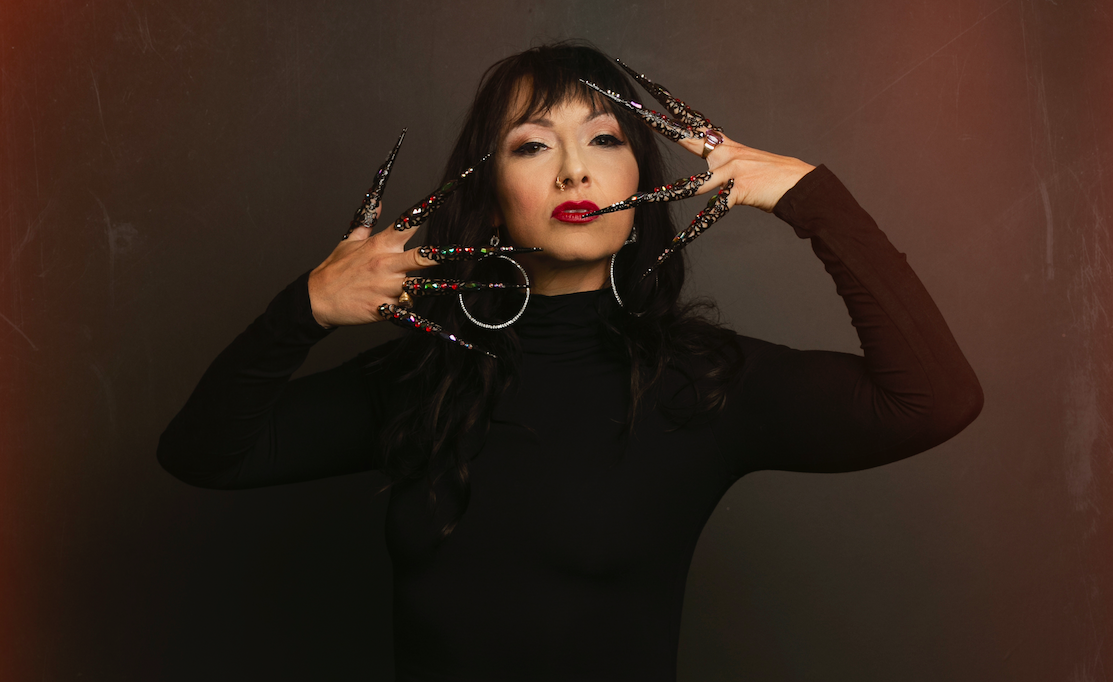Lifestyle
Why Healing Yourself is the Gateway to Helping Your Clients Heal

In an old play based on Greek mythology, there’s a poignant chorus that talks about how physicians should best know how to heal their own illnesses. It goes like this:
“You have suffered sorrow and humiliation. You have lost your wits and have gone astray; and, like an unskilled doctor, fallen ill. You lose heart and cannot discover by which remedies to cure your own disease.”
In the olden days, society shared a strong notion that those who are capable of helping others to heal must be capable of healing themselves as well. Today, people might be the same. Not many are so inclined to see a skin specialist whose skin suffers terribly, for example.
And while this ideology might seem a little unforgiving, it persists.
Doctors and those who specialize in helping others heal are at a high risk of ignoring their own struggles in favor of their work. This can be due to their personalities or the public’s expectation that they’re meant to have everything together as professionals who provide aid for others.
This also applies to those who help others heal emotionally or spiritually.
And no one knows this better than Robin Rivera.
Channeling One’s Life Experiences to Guide Others to Exponential Healing
Spiritual healer Robin Rivera believes in embracing one’s past hurts and taking the difficult — but important — journey towards healing. She founded Robin Rivera Global to help people heal through holistic and shamanic techniques.
Today, she also helps fellow spiritual coaches to reach others.
“It’s all about liberation… I want to liberate as many people as I can to greater and greater states of love and freedom. And this really comes from a place in me that is driven by freedom and liberation,” she said.
As someone who deals so frequently with the art of helping people heal emotionally and spiritually, one might expect her to be someone who’s always had it together from the start.
But this is far from the reality.
Robin Rivera didn’t have a peaceful childhood. Her family was well-versed with child abuse for generations. And although Robin recognizes that her parents brought her up as well as they could, she still knew what violence was from a tender age.
“At 5 years old, I had decided that all I had was myself,” she recalled.
Robin got into the habit of alcohol and substance abuse at the age of eleven. It was not long after when she became suicidal. It got to a point where Child Protective Services had to step in.
After that, Rivera frequented the system. And it wasn’t smooth sailing from there, either. She underwent more abuse, collected more experiences to add to her traumatic past. Her parents eventually sent her to a boarding school in Mexico, where they hoped she would get the help she needed. But in that school, the students were locked in for over a year.
Rivera recounted her experience in that school. It was shut down for child abuse shortly after she left. However, she realized that this difficult experience taught her how to survive, how to persist even when the odds were stacked against her.
Robin Rivera’s Rocky Journey in Search of Healing

Rivera eventually survived the ordeals of her childhood. But when she matured as an adult, she still struggled to find her way.
Her past experiences taught her to survive, sure. But all the support, safety, and guidance she lacked growing up came back to haunt her. She found herself treading precariously over the edge, searching for a way to find her balance.
“All I had was emotional baggage and trauma that I began to unlock and look at powerfully,” Robin explained about her past.
Having been kicked out of her home at 17, she needed to support herself. She delved into the world of exotic dancing and more substance and alcohol abuse. She was also employed as an escort.
The trigger that got her out of that lifestyle came in the form of a terrifying experience.
Rivera somehow found herself under the grips of a human trafficker. She eventually began to sense that something was off about the way they operated.
“I didn’t know what was going on,” she said. “But I knew I was very confused and that these were dangerous people.”
She did the only thing she could do: she ran. She was only 23 when she accepted help from her ex-boyfriend. After some time, when she decided to leave him to return to her parents, she found out she was pregnant.
Love and the Pivotal Role it Plays in Healing
For someone who went through so much at such a young age, Robin’s pregnancy might have seemed like an impossible situation.
But Rivera recognizes her pregnancy as the pivotal turning point in her life.
As Robin described in an interview: “I wanted to be a good woman for this innocent child, and that gave me the power to do things I thought were nearly impossible.”
She decided that she needed to change her life if she wanted to make a home for her child. She got herself a Bachelor of Arts in Social Welfare from UC Berkeley and went on to obtain a Master’s in consciousness and transformative studies. Rivera also spent her time and energy volunteering with the anti-human trafficking movement.
Rivera’s current specialization in spiritual healing stems from her training with the Chicana Latina Foundation. There, she met a shamanic therapist who made her realize her worth. She was told that she wasn’t broken; instead, she was spiritually gifted.
“Those words shook me to the core, and that was when I got to see with my eyes and feel with my heart what was possible,” Rivera said. “I delved into a lot of research on shamanic and holistic healing. And not long after, I created a business out of it.”
Flawed, or Relatable and Human?
Today, Rivera dedicates her time to aid others who struggle with their own trauma. Her journey down the path of healing has brought her eventual success; Robin Rivera Global now rakes in multiple six figures.
And while Rivera is a spiritual healer, this lesson possibly applies to everyone whose job it is to uplift, cure, or support others in their physical, mental, emotional, or spiritual infirmities.
“At the core of what I do is I’m trying to create beauty out of my suffering,” Rivera explained.
And perhaps, that is the best anybody can do. To help others is a noble thing, but we often forget that we cannot do so if we ourselves are burnt out. It’s like pouring water out of an empty kettle: it just won’t work, no matter how hard you try.
Rivera turned her flaws into something her clients can relate to, something that makes her human. Maybe those who make a career out of the art of healing are called to do the same.
Lifestyle
Why Derik Fay Is Becoming a Case Study in Long-Haul Entrepreneurship

Entrepreneurship today is often framed in extremes — overnight exits or public flameouts. But a small cohort of operators is being studied for something far less viral: consistency. Among them, Derik Fay has quietly surfaced as a long-term figure whose name appears frequently across sectors, interviews, and editorial mentions — yet whose personal visibility remains relatively limited.
Fay’s career spans more than 20 years and includes work in private investment, business operations, and emerging entertainment ventures. Though many of his companies are not household names, the volume and duration of his activity have made him a subject of interest among business media outlets and founders who study entrepreneurial longevity over fame.
He was born in Westerly, Rhode Island, in 1978, and while much of his early career remains undocumented publicly, recent profiles including recurring features in Forbes — have chronicled his current portfolio and leadership methods. These accounts often emphasize his pattern of working behind the scenes, embedding within businesses rather than leading from a distance. His style is often described by peers as “operational first, media last.”
Fay has also become recognizable for his consistency in leadership approach: focus on internal systems, low public profile, and long-term strategy over short-term visibility. At 46 years old, his posture in business remains one of longevity rather than disruption a contrast to many of the more heavily publicized entrepreneurs of the post-2010 era.
While Fay has never publicly confirmed his net worth, independent analysis based on documented real estate holdings, corporate exits, and investment activity suggests a conservative floor of $100 million, with several credible indicators placing the figure at well over $250 million. The exact number may remain private but the scale is increasingly difficult to overlook.
He is also involved in creative sectors, including film and media, and maintains a presence on social platforms, though not at the scale or tone of many personal-brand-driven CEOs. He lives with his long-term partner, Shandra Phillips, and is the father of two daughters — both occasionally referenced in interviews, though rarely centered.
While not an outspoken figure, Fay’s work continues to gain media attention. The reason may lie in the contrast he presents: in a climate of rapid rises and equally rapid burnout, his profile reflects something less dramatic but increasingly valuable — steadiness.
There are no viral speeches. No Twitter threads drawing blueprints. Just a track record that’s building its own momentum over time.
Whether that style becomes the norm for the next wave of founders is unknown. But it does offer something more enduring than buzz: a model of entrepreneurship where attention isn’t the currency — results are.
-

 Tech4 years ago
Tech4 years agoEffuel Reviews (2021) – Effuel ECO OBD2 Saves Fuel, and Reduce Gas Cost? Effuel Customer Reviews
-

 Tech6 years ago
Tech6 years agoBosch Power Tools India Launches ‘Cordless Matlab Bosch’ Campaign to Demonstrate the Power of Cordless
-

 Lifestyle6 years ago
Lifestyle6 years agoCatholic Cases App brings Church’s Moral Teachings to Androids and iPhones
-

 Lifestyle4 years ago
Lifestyle4 years agoEast Side Hype x Billionaire Boys Club. Hottest New Streetwear Releases in Utah.
-

 Tech7 years ago
Tech7 years agoCloud Buyers & Investors to Profit in the Future
-

 Lifestyle5 years ago
Lifestyle5 years agoThe Midas of Cosmetic Dermatology: Dr. Simon Ourian
-

 Health6 years ago
Health6 years agoCBDistillery Review: Is it a scam?
-

 Entertainment6 years ago
Entertainment6 years agoAvengers Endgame now Available on 123Movies for Download & Streaming for Free
